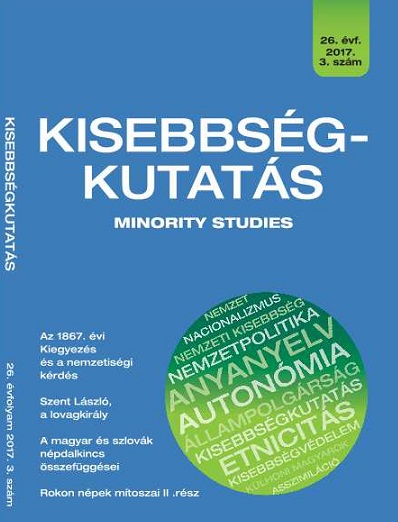Az államegység és a nemzetiségi jogegyenlőség dilemmái
The Dilemmas of State Unity and the Equality of Nationalities Before the Law
Author(s): László SzarkaSubject(s): 19th Century, Ethnic Minorities Studies
Published by: Lucidus Kiadó
Summary/Abstract: The fifty-year-long dualist cooperation within the Austro-Hungarian Empire, which followed the Austro-Hungarian Compromise of 1867 (concluded between the Hapsburg monarch and the Hungarian estates) and the law on national minorities (1868) brought a shift only seemingly in the strengthening of Hungary as a nation-state. The Hungarianization did not yield any substantial results: apart from the bilingualism of the non-Hungarian population and the linguistic assimilation of the Jewry, Hungarian was barely spoken in the villages inhabited by ethnic minorities, nor did they have a Hungarian identity. Besides several other factors, that also contributed to the disintegration of the historic Hungary after the First World War.
Journal: Kisebbségkutatás
- Issue Year: 26/2017
- Issue No: 3
- Page Range: 7-33
- Page Count: 27
- Language: Hungarian

